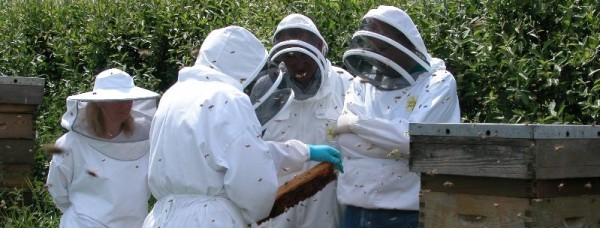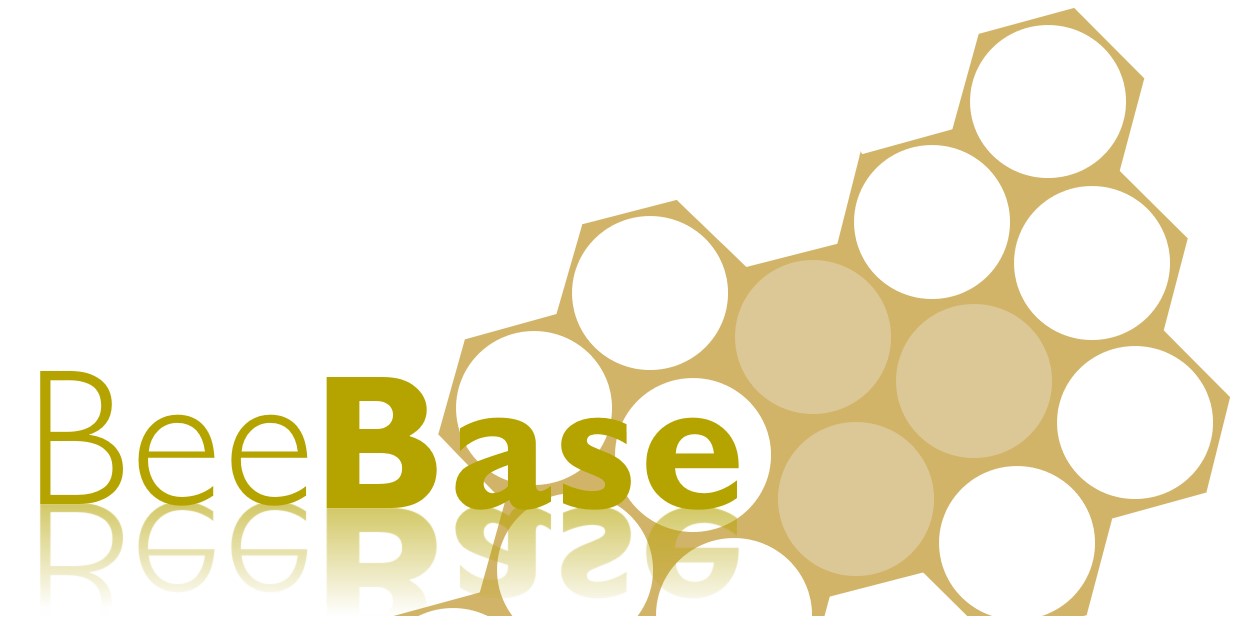How to get Started?
Have you always wanted to become a beekeeper but didn't know how to get started? Well, hopefully the BeeBase website will give you the information that helps you decide whether beekeeping is for you. Some areas of BeeBase that new beekeepers have found useful include:
- Advice for New Beekeepers
- Advisory leaflets and training manuals
- About the National Bee Unit
- Beekeeper Training and Education
- Contact the National Bee Unit
 Showing beekeepers how to look for disease in colonies
Showing beekeepers how to look for disease in colonies
What training is available?
Are you a beekeeper, looking for training to help you improve your beekeeping skills? Perhaps you are an experienced beekeeper, who wants to find out about beekeeping training events in your local area; maybe you are relatively new to keeping bees, and want to find out where to get additional training, advice and support; are you working for a government or industry outside the UK, and looking for specialised beekeeping consultancy services and training? Some areas of BeeBase that you may find helpful include:
- Beekeeper Training & Education: Find out about the different types of beekeeper training & education events provided by the NBU.
- Mentoring: Find out more about the benefits of mentoring.
- Advisory leaflets and training manuals: Here you will find more than 30 different leaflets and fact sheets, covering a variety of topics relating to honey bee health and husbandry, all of which you can download free of charge.
- The Statutory Apiary Inspections Programme: The NBU's highly-qualified field-based Bee Inspectors are able to assist beekeepers by providing a range of training on honey bee pest and disease recognition and control, good husbandry, and apiary management. Inspectors can provide practical apiary demonstrations, and are a wealth of free expert advice. The NBU also provides beekeeping consultancy services and training for government and industry overseas.
- Contact your local bee inspector: Contact details of your local bee inspector (England, Scotland and Wales); a further source of free, expert advice.
- Image Gallery: Provides useful pictures of the symptoms of important honey bee pests and diseases. You can reproduce these free of charge for the purposes of training and education.
